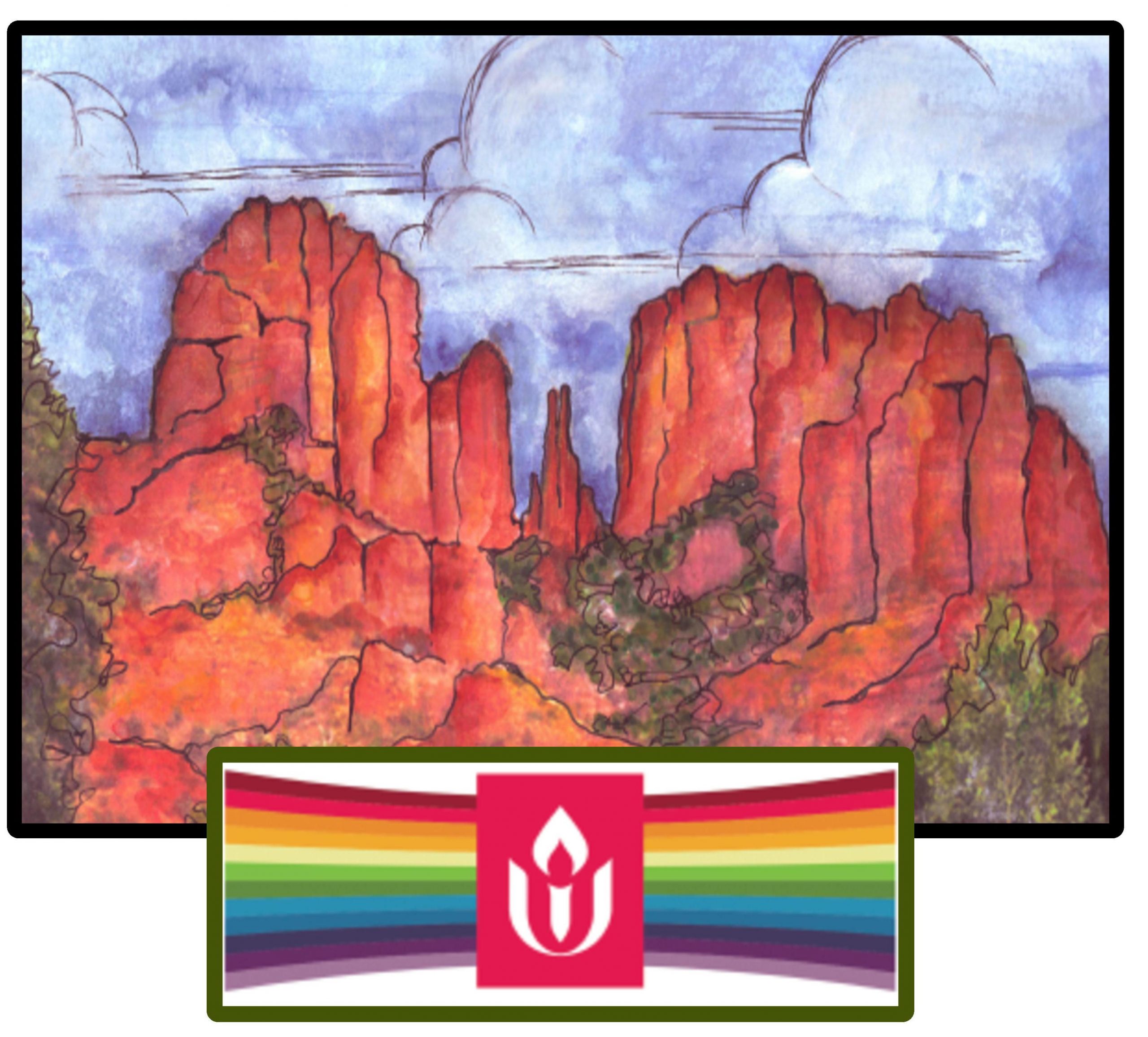What set of ideas characterize this faith tradition? Here is what most UUs believe:
- Freedom of religious expression. They encourage individuals to develop and share their own personal theologies, without fear of censure or reprisal.
- Tolerating religious ideas. They believe all religions possess intrinsic merit and have potential value for those who learn about them.
- Primacy of reason and conscience. On religion, their ultimate arbiter is not a church, a document, or an official, but each individual’s thoughtful choice.
- The never-ending search for truth. They keep their minds and hearts open, having faith that new insights and wisdom will come.
- The unity of experience. They trust that the sacred and the secular will align, since they spring from the same reality.
- The worth and dignity of each human being. Everyone has an equal claim to life, liberty, and justice.
- The ethical application of religion. Good works emerge from a good faith — inner grace is expressed in caring community involvement.
- The motive force of love. Human life flourishes with love that seeks others’ welfare, never to hurt or destroy.
- The necessity of democracy. Records should be open to scrutiny; elections open to members; and ideas open to criticism — so people can govern themselves.
- The importance of religious community. Peers provide a network of mutual support, along with a critical platform.
